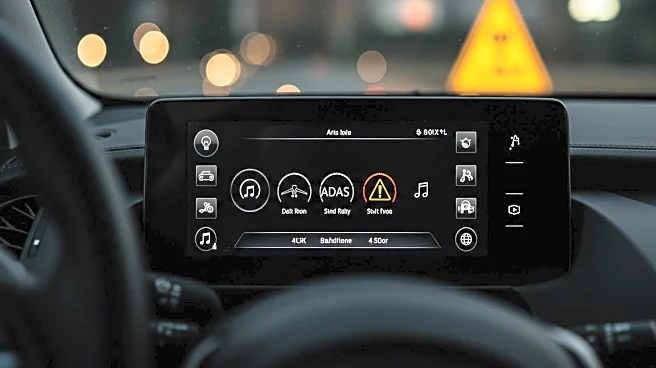What's Happening?
The American Automobile Association (AAA) has released a study highlighting the limitations of Active Driving Assistance (ADA) systems in vehicles. The study tested five cars equipped with ADA systems, revealing that these systems often fail to handle common driving scenarios, such as lane changes and maintaining lane centering. The report emphasizes that ADA systems are designed to assist, not replace, human drivers, and warns against over-reliance on these technologies. AAA recommends drivers remain alert and prepared to intervene, as ADA systems are not yet capable of fully autonomous driving.
Why It's Important?
The findings from AAA's study are significant for consumers and the automotive industry, as they highlight the gap between current ADA technology and fully autonomous driving capabilities. This has implications for driver safety, as overconfidence in these systems could lead to accidents. The report also impacts manufacturers, who may need to address consumer expectations and improve ADA technologies to enhance safety and reliability. Additionally, it raises questions about marketing practices, particularly for companies like Tesla, which have faced criticism for how they promote their driving assistance features.
What's Next?
Automakers may need to invest in further research and development to improve ADA systems, ensuring they can handle complex driving situations more effectively. Regulatory bodies might consider implementing stricter guidelines for the marketing and use of ADA technologies to prevent misleading claims about their capabilities. Consumers are likely to become more cautious and informed about the limitations of these systems, potentially influencing purchasing decisions.
Beyond the Headlines
The report could spark broader discussions on the ethical implications of marketing semi-autonomous driving technologies and the responsibilities of manufacturers in ensuring consumer safety. It may also lead to increased advocacy for transparency in the capabilities and limitations of ADA systems.









